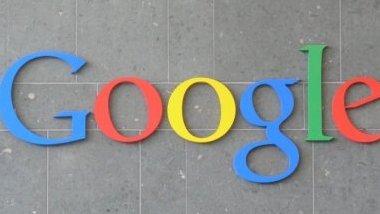Promoting more transparency and equity at the digital economy era: this is how the European Commission presented on 26 April its proposal for regulation “promoting fairness and transparency for business users of online intermediation services” (“platform-to-business” or P2B). The new rules proposed by the Commission aim at establishing increased obligations for transparency for online platforms, as well as creating remedies for their customers in case of disagreement. A welcome proposal, the move is also part of a coherent strategy.
Strict common norms
This Commission’s proposal especially applies to web giants Google, Facebook and Amazon, to the Dutch Booking.com, and to app stores. It aims to protect business companies that use these platforms’ services to be referenced on the web, such as hotels, online merchants or app developers. According to a Eurobarometer from June 2016, almost half of the SMEs surveyed in Europe use online platforms to sell their products and services.
With the new rules proposed by the Commission, online platforms will be compelled to clearly present their terms of use, which they won’t be allowed to modify without warning their users, who will have fifteen days to adapt to changes. In addition, any platform that would decide to deprive a user of its services will now have to justify its decision.
These new dispositions are of central importance for any online company whose turnover directly depends from the number of visitors ending up on their website. How many times have you already clicked on the second, or even third page of your Google search results? The Commission also seize the issue of search engine optimisation: Article 5 obliges platforms to explain their results’ hierarchisation parameters and to clarify if remuneration comes into play.
Margrethe Vestager, the digital Jedi
The abuses of online platforms are a well-known subject at the Commission. Margrethe Vestager, the European Commissioner for Competition, is leading a heated fight against GAFA, which seek to get around the European rules. Under her drive, in June 2017, the Commission sentenced Google to pay a record fine of 2,42 billion euros for abuse of a dominant position. The American giant was accused of using its search engine to favour its own comparison shopper, Google Shopping, to the detriment of its competitors, who were systematically relegated at the end of the search. The Commission also opened two additional inquiries on Google’s advertising service, and on its famous operating system Android.
In addition, the Danish commissioner’s service attacked another specialty of American web giants: tax avoidance. Amazon and Apple were sentenced to repay 250 million and 13 billion euros respectively to Luxembourg and Ireland, considered by the Commission as undue fiscal advantages. Despite being contested by the concerned Member States, these decisions illustrate how acting at the European level is apt for fighting fiscal dumping.
A coherent strategy, based on common values
These initiatives of the Commission are part of a more global strategy, firmly oriented towards consumers, SME’s, and the citizens. As such, in March, the Commission proposed the creation of a “digital taxation” in order to harness web giants that make use of our personal data without paying taxes on generated profits. This proposal was highly criticised by the American administration that considers it a European protectionist measure. However, this measure is necessary regarding the outrageous sums that currently avoid taxation.
These personal data are now protected by the General Data Protection Regulation (GDPR), entered into force on 25 May 2018. This subject is more than ever in the news since the Cambridge Analytica scandal and the use of the personal data of 87 million Facebook users for the American elections and Brexit. Mark Zuckerberg himself considered European rules as a “very positive step for the Internet”. European consumers’ online rights were also strengthened with the “New Deal for Consumers”, published on 11 April by the Commission.
Regarding the fight against fake news, the Commission appears much more timorous. The measures against online disinformation proposed on 26 April favour the approach of platforms’ self-regulation. The Commission simply published a “Code of Practice on Disinformation” aiming at making the sector aware of its responsibilities, for fear of being accused of introducing a form of censorship. The Commission is currently thinking about a similar approach concerning harmful content for minors and terrorist contents.
These initiatives are as welcome as necessary at a time when personal and commercial relations are ruled by the essential infrastructures that online platforms have become. Digital technology becomes, at last, a political priority of the Commission, as the new multiannual financial framework presented on the 2nd of May demonstrates. The elaboration of strong common norms on this subject not only shows the Union’s capacity to be united and to register progress with important subjects, but is also essential if we want to establish a real sovereignty in the digital era.






Follow the comments: |
|
